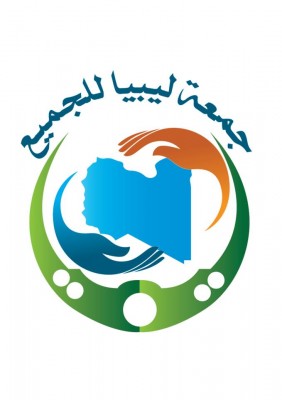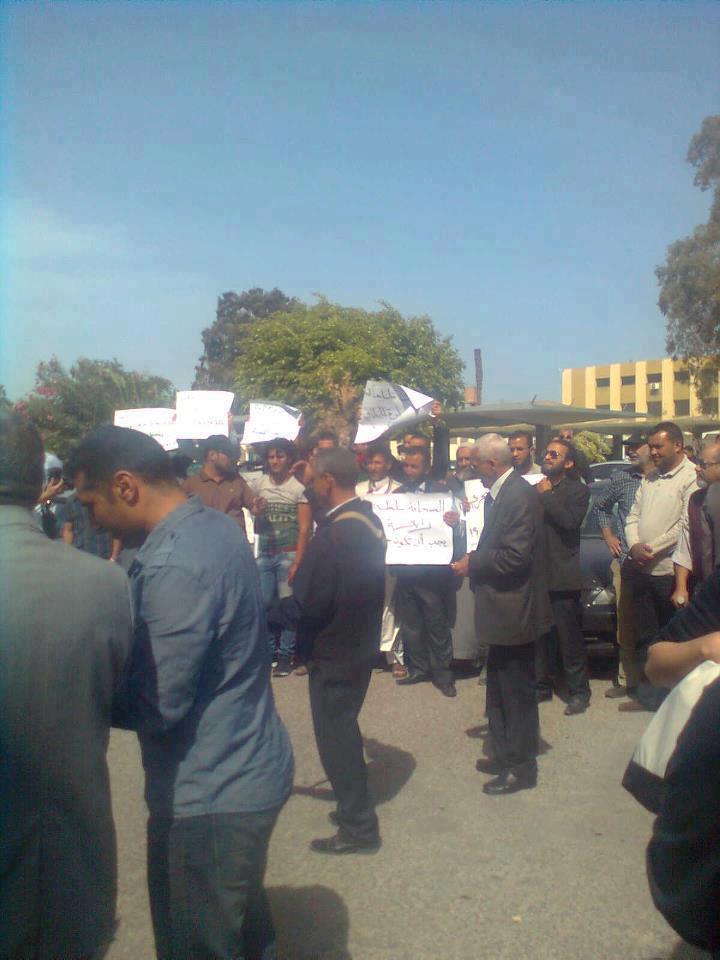
A . . .[restrict]nation-wide appeal to stand for a united Libya has been launched by a group of independent activists and others from civil society organisations. The event planned for 19 April, Friday, plans to show to the outside world that Libyans are in favour of unity, transitional justice and national reconciliation, a Libya that says ‘Yes’ to moving beyond the fighting, past the collective punishments, past the corruption and past jungle law.
Mohamed Alshokri, among the ‘Friday Libya for All’ organisers from Benghazi, believes that Libya’s image has been distorted, and the issues facing it have “dissolved it as a country”. Asked to further explain his latter point, he implied that the nation was being divided by tribal and zonal conflicts, partisan politics, and by eagerness to class Libyans according their affiliations to the former regime.
Although these issues are significant, they do not represent Libya as a whole, he said, adding that he believed Libyans are now more concerned with building the country. They see justice and reconciliation as integral parts of the process.
Alshokri claimed the initiative has been misconstrued as an effort to vilify the political isolation law, pointing out that many see the path towards national reconciliation as antagonistic to that legislation. However, he said that the two are not in opposition, but rather the law, if properly applied, could be a tool to achieve reconciliation.
The ‘Friday Libya for All’ group has also been accused of being backed by certain political parties, an allegation that Alshokri flatly denied: “We are a network of activists and some of us even fought in the war. We know each other from previous dealings or are simply friends. We have helped organise rallies in the past and strive to promote the true aspirations of the revolution”.
He added “Libya is not like any other country. We are being watched to see what we do with the freedom we fought for.”
The audience is not just the international community, he said. The rally aims to send a clear message to Libya’s governing bodies, that citizens want to move on and rebuild the country. As an activist who had been involved in the revolution since March 2011, Alshokri said he had noted a shift in the public’s understanding of concepts relating to human rights and rule of law. He cited Misrata’s “Enough”, and Zawia’s “Oppression has no legitimacy”, campaigns as recent examples to back his observation.
The ‘Friday Libya for All’ organisers plan rallies for Tripoli, Benghazi, Misrata, Zawia, the eastern towns from Ajdabya to Tobruk, and is seeking to involve people from Tawergha and members of the Warshefana tribe. The turnout will not be as massive as the anti-millitia Save Benghazi protest, said Alshokri, but he hoped efforts to promote the event will result in sizeable crowds.

In Benghazi, the activists petitioned Benina’s Air Base, with a letter for their support and recommended they participate in the aerial distribution of leaflets. Leaflets were dropped from a helicopter belonging to the base on 14 April. Today, a statement released by the Air Force claims that the Chief of Staff of the Air Force and General Chief of Staff, had no prior knowledge that a military plane would be “participating or assisting in political activities and popular movements”. The statement cautioned that the military is an institution that must remain neutral, and be ruled by discipline and protocol. An investigation into the incident will be carried out.
Alshokri said that on a previous occasion, a helicopter had been used to drop leaflet over the city, on that occasion for a local NGO, Benghazi Al-Khair. He feared, however, that pressure to investigate his own group’s use of the helicopter, was driven by those who oppose calls for Friday’s rallies, national reconciliation and transitional justice.
Despite the unfavourable attention brought on by the helicopter incident, the activists said they will continue to publicise the call for unity throughout the week. They hope to use 18 April’s Benghazi Carnival as a means to reach more people. The carnival is the inaugural event to celebrate the city’s standing as Libya’s “Culture Capital” for 2013.
[/restrict]







